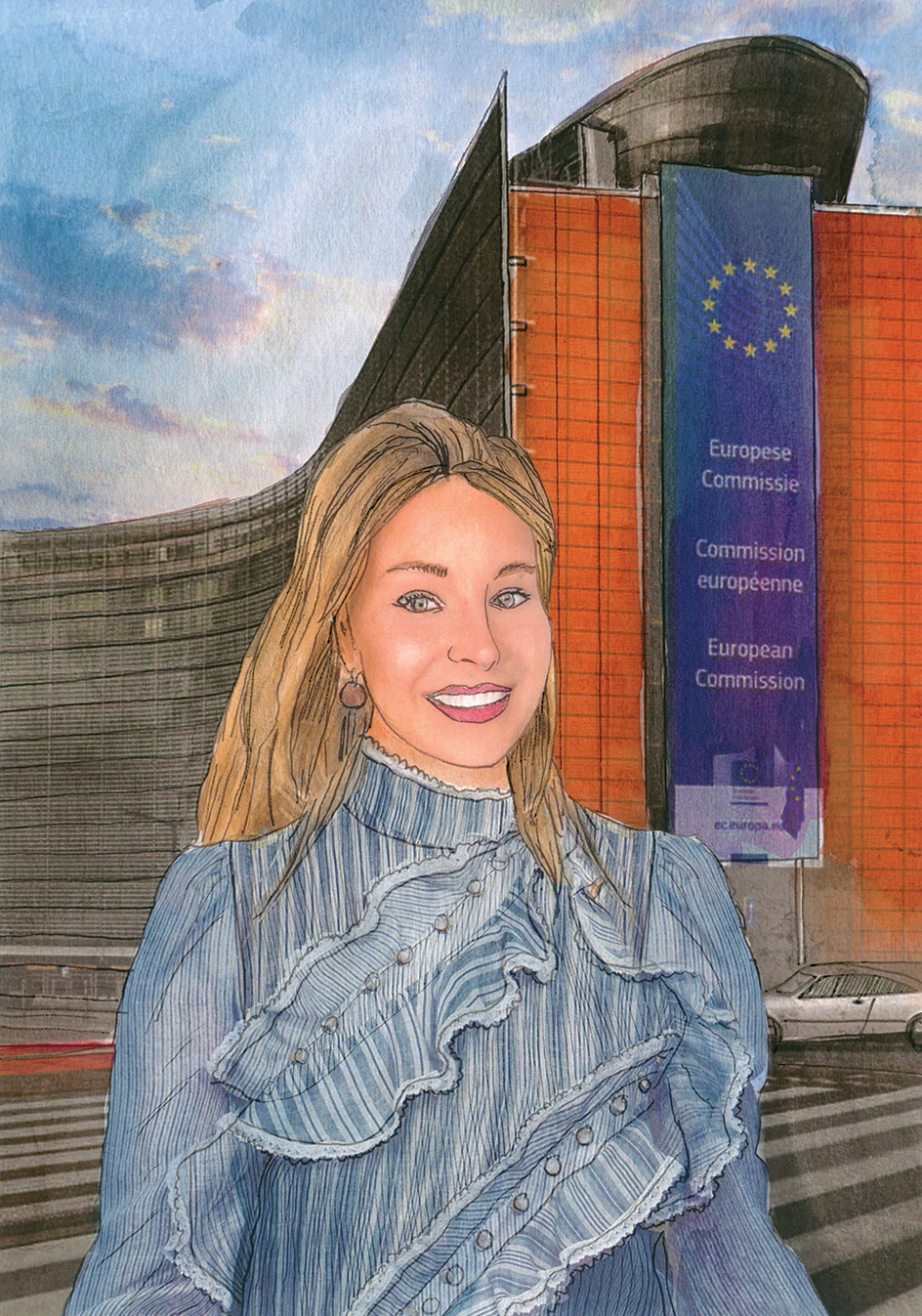
What did I need to learn to do this job?
Back in school, I think maths was my favourite subject. I also liked being part of a school choir.
I went to three different universities, where I studied political science and European law. It took six years to complete my studies. I wish I could go back to university again – I love learning, and it is also where I met my closest friends.
In my job, the most important skills are listening, reading, writing and speaking. In my job it is important to be able to quickly understand complicated legal texts, negotiate, write speeches and communicate with colleagues and stakeholders from different countries and backgrounds. I speak Polish, French and English well, and I can also speak some Spanish and Bulgarian.
Aleksandra Tomczak, 34, Belgium
Member of the cabinet of the executive vice-president of the European Commission
The coal miners’ friend
I always wanted to be helpful. As a child I thought the best way to do this was to become a policewoman, but instead I ended up helping coal regions.
If we are to halt global warming caused by climate change, we must stop digging up and burning coal, and instead use clean sources of energy such as wind and sun. This means that coal miners in regions like Katowice in Poland, will have to find new jobs.
My role in the European Commission is to help such regions create new jobs and opportunities for people. I had a lot of experience working with fossil fuel industries, where the number of jobs is decreasing. My current boss thought this experience could be helpful to the Commission.
The European Commission is based in Brussels, the capital of Belgium, and it proposes and implements laws and rules that apply to all 27 countries in the European Union. The Commission is working to implement the European Green Deal to make our continent a cleaner, more sustainable place to live. I am part of the team which coordinates this massive task.
There are 180,000 people working in coal mines in Europe. I can’t help them all personally. My job is to suggest ways the European Commission can help national governments and regions create new jobs for these people.
Coal miners often think they can only work in coal mines, but in reality they are very skilled workers and highly trained in operating sophisticated machines, working in difficult conditions, respecting health and safety codes and many are also trained electricians. With a bit of retraining, they could easily work, for example, as technicians on wind turbines.
By 2050, we want Europe to have no negative impact on the climate and the environment, so we can all live safer, healthier lives. China, South Africa, Japan and South Korea have also committed to follow the same path. But to achieve this vision, people need to have the skills necessary to work in new renewable energy jobs.
Though I feel very connected to Poland and my family, I’ve always wanted to study, work and live in different countries and meet people with different cultures, speaking different languages and living different lives. When I lived in Poland there was very little ethnic diversity and everyone looked similar. It made me want to know what the rest of the world looks like.
I lived with a host family in France from the age of 15 and this is also where I went to high school and did part of my studies. I then lived in Cardiff in Wales and in Bruges in Belgium, where I went to university. From there I moved to London in England, where I started working.
I come from a coal mining region. My great grandfather worked in the coal mines in Belgium as a seasonal worker and my grandfather still today plays in a brass band in a coal mine. So in my job I find it very interesting to travel to coal mining regions around Europe and see how, despite so many cultural differences, there are also so many similarities.

